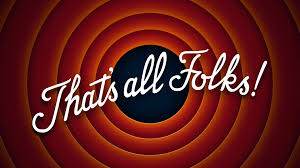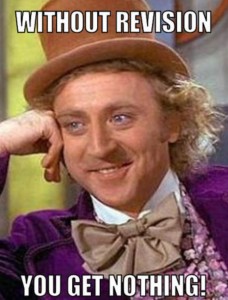Thank you to Martha for leading us through a discussion of Ranking, Evaluating, & Liking (Elbow) as well as Grammar, Grammars, and Teaching Grammar (Hartwell). We were able to share our many insights about Elbow’s formulation of ranking vs. evaluation, and we all thought further about the role that grammar might play in the acquisition of writing skills. At the heart of general discussion was a focus on pedagogic strategies, and the consideration of such strategies in creating an effective environment for learning and growing as a writer.
 I thought it was a timely experience for Martha to receive that “unpracticed” missive as a prelude to back to school night from her son’s English teacher (i.e. his open grading policy and his dismissal of accountability with learning stakeholders). Coming on the heels of our Elbow reading, this unpracticed move on the part of the teacher illustrates the pitfalls of conflating “open practice” with free reign. I am quite sure that Elbow did not have an implementation that looked like this letter in mind. The teacher’s mistake also illuminated the shortcomings of implementing theory without considering the people effected in practice. It revealed a lack of experience. Ultimately, what becomes more clear to us is that a thoughtful incorporation of progressive forms of evaluation must be built on certain understanding within the learning community (i.e. their shared values, their shared purpose).
I thought it was a timely experience for Martha to receive that “unpracticed” missive as a prelude to back to school night from her son’s English teacher (i.e. his open grading policy and his dismissal of accountability with learning stakeholders). Coming on the heels of our Elbow reading, this unpracticed move on the part of the teacher illustrates the pitfalls of conflating “open practice” with free reign. I am quite sure that Elbow did not have an implementation that looked like this letter in mind. The teacher’s mistake also illuminated the shortcomings of implementing theory without considering the people effected in practice. It revealed a lack of experience. Ultimately, what becomes more clear to us is that a thoughtful incorporation of progressive forms of evaluation must be built on certain understanding within the learning community (i.e. their shared values, their shared purpose).
 One take away for me: further reflection on the challenge of being a teacher. Teaching is a dynamic practice that is at the heart a negotiation between people. Teaching is hard work – a teacher cannot think or act in static assumption if they are truly going to engender a space for authentic learning. As we continue to attempt to bridge the gap between theory & practice, it is “real life” moments like these which tend to illuminate the stakes at hand.
One take away for me: further reflection on the challenge of being a teacher. Teaching is a dynamic practice that is at the heart a negotiation between people. Teaching is hard work – a teacher cannot think or act in static assumption if they are truly going to engender a space for authentic learning. As we continue to attempt to bridge the gap between theory & practice, it is “real life” moments like these which tend to illuminate the stakes at hand.
Regarding your final group project: I sense some consensus emerging as you tinker with your design ideas. I think that you are now reaching for an open forum to address “Finding Your Voice” or considering “Why I Write”. You spoke about a collection of vignettes capturing the spirit of this inquiry. Each of you will create a unique contribution to this discussion, sort of like a piece of patchwork. The diversity of your contributions will be woven together like the vivid colors of a beautiful quilt.
Some exciting food for thought:
November is Digital Writing Month, better known as @DigiWriMo or #DigiWriMo. Please subscribe here. If you are teaching, consider having your own students join in as well. Follow the hashtag to receive updates.
We have been invited as a group to participate formally in whatever way we would like:
In short, we can plan for our own form of participation. This is the perfect venue to gain audience for your forthcoming work! I thought this would be a great way to highlight your project to a broader scholarly community. In addition, @DigiWrimo is sponsored by Hybrid Pedagogy – the journal that I had in mind for showcasing your final project via publication. Therefore, it makes sense to build upon your project by contributing and connecting here.
Up next:
Melissa will lead our discussion of Bi, Butch and Bar Dyke: Pedagogical Performances of Class, Gender & Sexuality; Voice in Writing Again: Embracing Contraries. I look forward to this class as we will further our group reflection on the notion of “finding voice”.
Please remember to blog about these readings, and please include in your blog post some thoughts on the group project as it stands, and how we might be able to participate in #DigiWriMo while continuing to develop your final class project.
See you on Monday!
 Our last night of class together was a memorable one – a veritable feast and (sometimes heated) deliberation about the frame for this project. In my opinion, this kind of culmination was indeed apropros with the overall learning dimensions for this course.
Our last night of class together was a memorable one – a veritable feast and (sometimes heated) deliberation about the frame for this project. In my opinion, this kind of culmination was indeed apropros with the overall learning dimensions for this course.











 ment where the formula could be overcome (i.e. the training wheels are no longer needed), then the emergence of a more authentic writer might have a chance to blossom.
ment where the formula could be overcome (i.e. the training wheels are no longer needed), then the emergence of a more authentic writer might have a chance to blossom.












